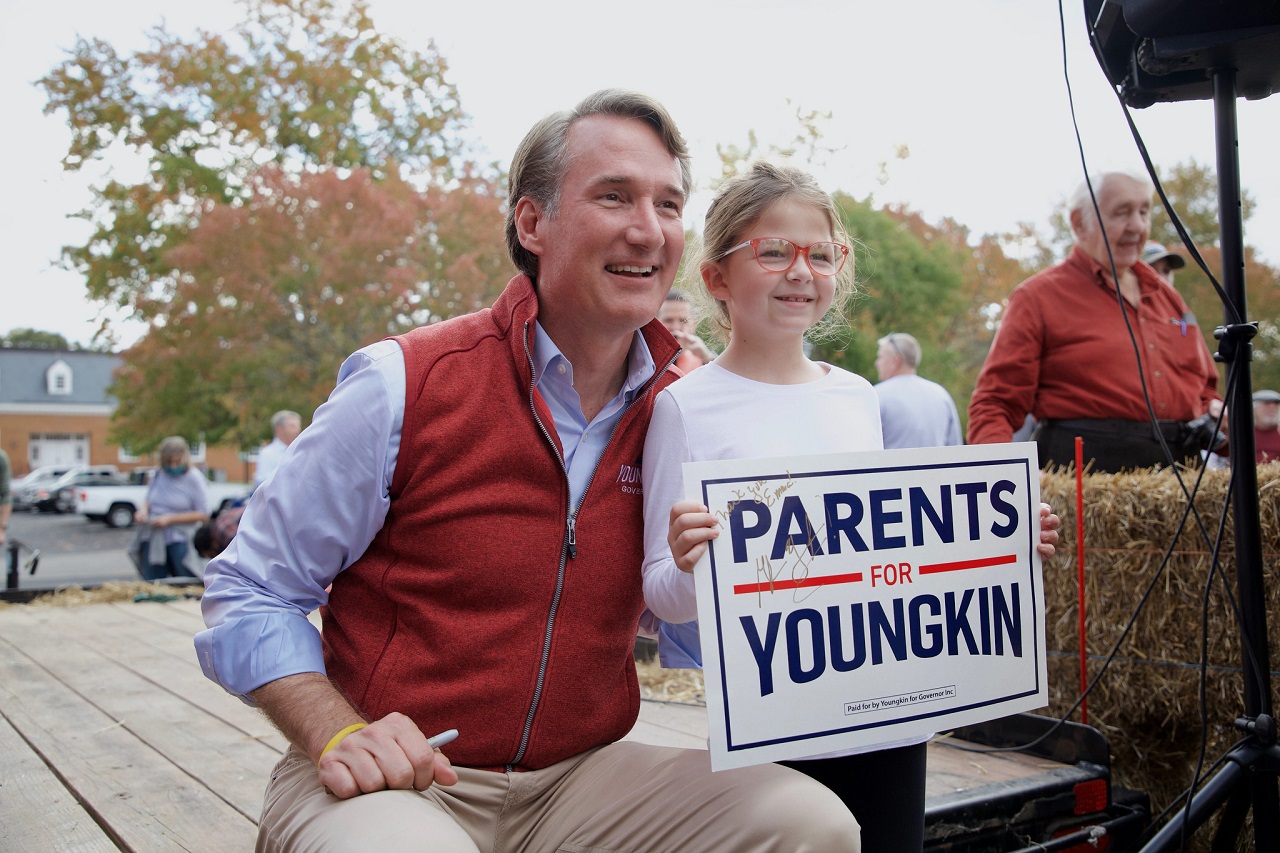When possible 2024 Republican presidential candidates are discussed, a handful of names typically come up: former President Donald Trump, Florida Gov. Ron DeSantis, and former Vice President Mike Pence lead the field. Former Secretary of State Mike Pompeo and a handful of GOP senators — some of them 2016 contenders, others not — are also the subject of speculation.
Add to that list a new name: Virginia Gov. Glenn Youngkin. He’s been courting big Republican donors, doing national media interviews, and stopping well short of Shermanesque statements when asked about the possibility. “Youngkin is nowhere close to announcing his candidacy,” is how Axios described it. “He’s just in the megadonor meeting stage, trying to better read the room.”
Youngkin’s upset victory in a state President Joe Biden won by 10 points and which had been trending Democratic for over 15 years was bound to get people talking about him as a presidential prospect. It happened after Scott Brown won Ted Kennedy’s former Senate seat in Massachusetts in a similar foreshadowing of Democratic midterm defeat. Keep an eye on Democratic Sen. Raphael Warnock if he survives the red wave in November.
The Virginia governor is wealthy, telegenic, and widely believed to have written the script for how Republicans should navigate Trump. He cannot run for reelection in 2025, so he will be looking for new work anyway. He is already boosting his involvement in national Republican politics. He may be seen as unthreatening to suburbanites while not deflating the MAGA base — a political dynamic that, unlike myriad voter fraud claims, would have actually changed the outcome of the last presidential election.
Mitt Romney was able to run a credible presidential campaign in 2008 during a single term as Massachusetts governor that set him up to ultimately win the nomination in 2012, before losing to Barack Obama.
This enabled Romney to govern to the right of his blue state, because he wasn’t running for reelection. (Though not to the right enough.) So there’s precedent, and unlike Romney, Youngkin doesn’t have any electoral losses on his resume.
Finally, Trump is to some degree freezing the Republican field. Plenty of 2024 possibilities have said they will defer to Trump, or are at least equivocal about their own ambitions as the former president weighs his plans. The hardcore Never Trumpers like Maryland Gov. Larry Hogan or more recent converts like former New Jersey Gov. Chris Christie are unlikely to be deterred by Trump’s decision, but all seem like longshots.
Still, the top tier of the Republican presidential field is going to start out with a huge name identification advantage, especially if Trump runs. That race will likely be defined by Trump either way, undermining the strategy that worked for Youngkin last year. Something probably needs to derail DeSantis for this to be at all realistic.
It could happen. DeSantis could be the Scott Walker of 2024. But the Florida governor’s fundraising prowess more closely resembles George W. Bush’s in 1999 than Jeb Bush’s in 2015. If Trump doesn’t run, someone needs to be the heir to the populist wing of the party. DeSantis has set himself up for that better than any other single Republican leader.
If Trump does run, he and another candidate — probably Pence, but possibly a lower-tier Never Trumper — will wind up arguing about 2020 for much of the primaries. Unless the Jan. 6 committee has greater impact than it now appears, Trump will probably still win that argument with the GOP primary electorate.
But it does create an opening for a forward-looking conservative combatant, somebody who wants to talk about Biden and the Democrats in 2024 rather than relitigate a past election indefinitely. DeSantis is also well positioned to be that candidate, especially in a three-way race with Trump and Pence. This, however, is a lane Youngkin could potentially occupy if conservatives believe he has kept his campaign promises in Virginia.
Youngkin is most likely setting himself up for the future. But in electoral politics since at least Barack Obama, fortune favors the bold. He knows there is no guarantee that once out of office he will have the relevance he has now. It makes sense to do due diligence on a presidential run.
Yet like a football team with only a moderately talented roster, a lot would have to go right for Youngkin to win it all, much of it beyond his control.
Now a 1945 Contributing Editor, W. James Antle III is the Washington Examiner’s politics editor. He was previously managing editor of the Daily Caller, associate editor of the American Spectator, and senior writer for the American Conservative. He is the author of Devouring Freedom: Can Big Government Ever Be Stopped? You can follow home on Twitter: @Jimantle.

